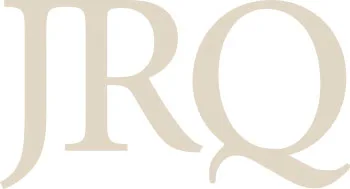Surrogacy decision leaves children without parents
Hundreds of Australian children born overseas through commercial surrogacy arrangements have been left without legal parents, following a decision of the full Family Court.
The ruling has prompted calls for urgent legislative change so that children are not left in a legal limbo — and potentially stateless.
The case in question involved an Australian couple, known as “Mr and Mrs Bernieres” who travelled to “Country T” and entered a commercial arrangement with a surrogate mother.
In 2014, a girl was born — the product of Mr Bernieres’ sperm and an egg from an anonymous donor. The fetus had been carried by the surrogate mother. The couple had been unable to conceive naturally because Mrs Bernieres suffered from poor egg quality and low egg reserve. The couple, who have been raising the girl, now 3, in Melbourne, applied to the Family Court for a declaration that they were her legal parents.
In a decision published last week, three judges of the court ruled the couple were not her legal parents, despite Mr Bernieres being her biological father. This is because the commonwealth Family Law Act leaves it to state and territory legislation to determine the status of children born under surrogacy arrangements.
Mr and Mrs Bernieres were not recognised as parents under the Victorian legislation because, like all states, it does not recognise children born via commercial surrogacy arrangements.
“The unfortunate result of that conclusion is that the parentage of the child here is in doubt …” the judgment says. “There is no question that the father is the child’s biological father, but that does not translate into him being a parent for the purposes of the Act. Further, the mother is not even the biological mother, and thus is even less likely to be the ‘legal parent’.”
Previously, there was inconsistency as to whether individual judges would recognise the parentage of children born via commercial surrogacy arrangements. This was the first time the full Family Court had ruled on the issue.
The three judges, Chief Justice Diana Bryant, Steven Strickland and Judith Ryan, said it was not open to the court to fill the “legislative vacuum” that existed for children born via overseas commercial surrogacy arrangements; this needed to be fixed by legislation.
In doing so, the judges upheld an earlier decision of judge David Berman, who gave Mr and Mrs Bernieres responsibility for caring for the child but not a declaration of parentage.
Justice Berman said he could well understand the couple’s dismay because they were “not able to secure for all purposes that which they fervently seek, namely, recognition and a declaration of parentage”.
“There is a clear need for urgent legislative change,” he said in the 2015 judgment.
He had no doubt about the couple’s “overarching love” for the girl, and their “ability, capacity and intention” to fulfil her needs — but he had “significant misgivings” about the surrogacy process and the “disturbing” terms of the couple’s contractual arrangement with the surrogate mother.
Surrogacy Australia president Robert Reith said urgent change was needed to provide certainty to children and parents.
“The law absolutely needs a review and to be brought up to date with modern standards,” Mr Reith said. “It’s outrageous.”
Barrister Robin Smith, who acted for Mr and Mrs Bernieres, said the only option for them was to apply to adopt the child but this would be a very difficult process. “Unfortunately they have now fallen through the cracks of the state and commonwealth legislation, which means they really don’t have any remedy,” he said.
Dr Smith said that while they could make key decisions for the girl, including those relating to her medical care and schooling, because they had been given responsibility for her care, she would not necessarily be recognised as their child when it came to inheritance, and if they separated or divorced, they might not be able to be forced to provide child support.
Family lawyer Stephen Page has also said the full Family Court decision could impact on whether the Department of Immigration will recognise children born via overseas surrogacy arrangements as Australian citizens.
In NSW, Queensland and the ACT, it is illegal for individuals to enter into overseas commercial surrogacy arrangements. It is estimated that about 250 babies a year are born overseas via surrogacy arrangements to Australian couples.
Read More: The Australian
By: Nicola Berkovic



